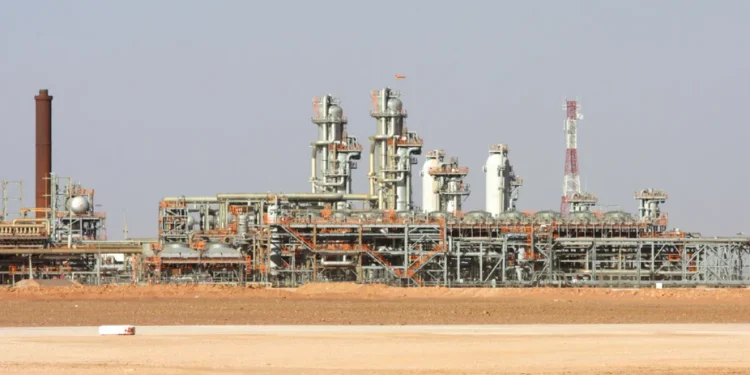- Algeria has launched a $50Bn investment drive to revitalize its hydrocarbon sector, starting with a 2024 licensing round offering six onshore blocks to domestic and international investors.
- Backed by extensive seismic data and a transparent bidding process, the initiative aims to attract global energy players while aligning with sustainability trends.
- This marks the first step in Algeria’s five-year strategy to position itself as a key energy hub in North Africa.
Algeria, one of the key players in the global energy market, is embarking on an ambitious journey to inject $50 billion into its hydrocarbon sector over the next four years. This investment drive aims to rejuvenate the nation’s exploration and production activities, signaling a new era of energy innovation and international collaboration.
Central to this transformative initiative is Algeria’s 2024 licensing round, which has captured the attention of global energy stakeholders and positioned the country as a beacon for hydrocarbon opportunities in North Africa.
Algeria’s hydrocarbon licensing round at a glance
According to the Energy, Capital & Power, Algeria’s National Agency for the Valorization of Hydrocarbon Resources (ALNAFT) has crafted the 2024 licensing round to ensure transparency and attract a diverse array of investors. This round offers six strategically located onshore blocks—M’Zaid, Ahara, Reggane II, Zerafa II, Toual, and Kern El-Kassa—spanning an expansive 152,000 km².
These blocks, which are available under Production Sharing Contracts (PSCs) and Participation Agreements, are modelled to cater to the unique operational preferences of international and domestic energy players.
What sets this licensing round apart is the robust geological and geophysical data provided by ALNAFT. Investors can access over 102,000 line-kilometers of 2D seismic data and more than 45,000 km² of 3D seismic data, offering unparalleled insights into Algeria’s subsurface potential. This commitment to data-driven decision-making underscores Algeria’s intent to facilitate informed investments and mitigate exploration risks.
A roadmap to investment: Key dates and milestones
The licensing round officially commenced on November 26, 2024, when tender documents and data rooms became accessible to interested parties. With a deadline for bid submissions set for April 15, 2025, Algeria has laid out a clear and efficient timeline for the process.
Successful bidders will see their contracts awarded in a formal ceremony in Algiers on May 29, 2025. This well-structured approach reflects Algeria’s dedication to fostering trust and efficiency in its hydrocarbon sector.
Notably, this is just the beginning of a broader five-year licensing strategy that will feature annual bid rounds through 2029. By committing to a steady cadence of investment opportunities, Algeria aims to solidify its reputation as a reliable and strategic partner in the global energy ecosystem.
Unlocking opportunities: Implications for investors
For investors, Algeria’s 2024 licensing round offers a compelling value proposition. The acreage, backed by quality seismic data, minimizes uncertainty and opens doors to lucrative exploration prospects. With the choice of PSCs and Participation Agreements, investors can select contractual terms that best align with their operational models and risk appetites.
Moreover, the bid round is launching at an opportune time, as global energy demand continues to grow amidst geopolitical shifts. Algeria’s location at the crossroads of Europe and Africa positions it as a critical supplier to energy-hungry markets, particularly in the European Union, where the transition to renewable energy coexists with sustained reliance on hydrocarbons.
Aligning with global energy trends
Algeria’s investment drive is not just about hydrocarbons; it also aligns with the broader global shift toward sustainability. The country is exploring ways to integrate cleaner technologies and reduce the environmental footprint of its hydrocarbon activities. This dual focus on growth and sustainability is expected to attract investors who prioritize Environmental, Social, and Governance (ESG) criteria in their portfolios.
Additionally, the comprehensive dataset available for the licensing round enhances Algeria’s appeal to technologically advanced energy companies. These firms can leverage cutting-edge seismic analysis and exploration techniques to maximize returns while adhering to stringent environmental standards.
Strengthening Algeria’s global standing
The 2024 licensing round is more than a domestic initiative; it’s a strategic move to enhance Algeria’s standing in the global energy market. By fostering transparency, innovation, and collaboration, Algeria aims to position itself as a hub for energy investments in North Africa.
Events such as the Invest in African Energy (IAE) Forum, scheduled to take place in Paris in May 2025, further amplify Algeria’s efforts. This forum will provide a platform for stakeholders to analyze the implications of the licensing round, discuss its outcomes, and explore potential partnerships for future rounds. By engaging with international investors and thought leaders, Algeria underscores its commitment to a forward-looking energy strategy.
Overcoming the challenges ahead
While the $50 billion investment drive is undoubtedly ambitious, it is not without challenges. The hydrocarbon sector faces fluctuating global prices, regulatory complexities, and increasing scrutiny over environmental impacts.
However, Algeria’s proactive approach, including its transparent bid process and emphasis on ESG considerations, positions it well to navigate these obstacles. By maintaining a steady pipeline of licensing opportunities and embracing innovation, the country is laying the groundwork for sustained growth and resilience in a rapidly evolving energy landscape. The 2024 licensing round is just the first step in this transformative journey.
Algeria’s $50 billion hydrocarbon investment drive represents a transformative moment for the nation and the global energy market. In a world increasingly defined by innovation and collaboration, Algeria’s bold vision for its hydrocarbon sector serves as a model for how nations can harness their natural resources to drive growth, attract investment, and secure their place in the global energy ecosystem.
Read also: The promise and challenges of Green Hydrogen in North Africa









